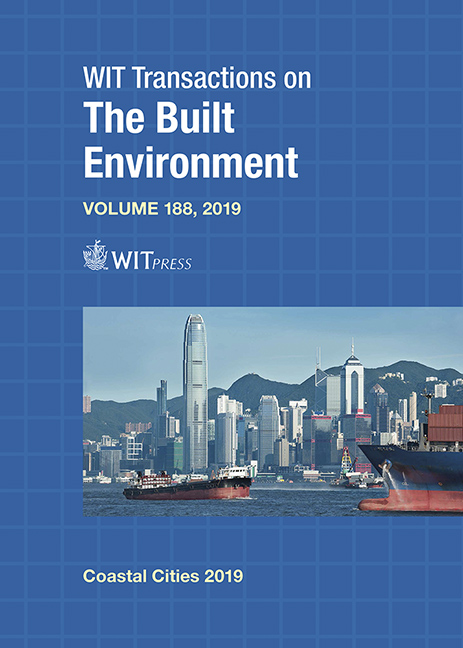ROLE OF PORTS IN AMAZONIAN CITIES FOR SUSTAINABLE URBAN DEVELOPMENT: THE CASE OF BELEM, BRAZIL
Price
Free (open access)
Transaction
Volume
188
Pages
12
Page Range
35 - 46
Published
2019
Paper DOI
10.2495/CC190041
Copyright
WIT Press
Author(s)
MAISA SALES GAMA TOBIAS, NELIO MOURA DE FIGUEIREDO, HITO BRAGA DE MORAES
Abstract
Over time, ports in the Amazon constituted the first input vectors and occupation of the territory, defining locations and greatly interfering with the flow of cargo and passengers, either in the catching process, or even in the distribution of flows over the region. However, as cities have developed, very little has taken advantage of the potential of ports to support urban development; in many cases, conflicts arise between port and urban activities. In other words, there is a need to review the role of ports, with models of urban interventions in the port cities, in a more comprehensive and complete way, in order to consider the socioeconomic and spatial dynamics existing in the city and the port. This work has undertaken an analysis in ports along the waterfront in Belem, Brazil, in an urban context of sustainable development, in order to qualify the role of each port within an assignment division function with other ports and, also, in an urban planning context, searching for balanced development between city and port. The study was started with the bibliographic review, with the characterization of port relationships, in the urban environment of mainland and islands. In the methodology, a survey was undertaken in order to obtain the origin-destination matrix, port infrastructure conditions and accessibility. After the database was built, it proceeded to analyze the data, with geo-referencing of information and discussion of results. Among the results, it was observed that port functionalities, generally influence the social, economic and spatial dynamics existing in the city-port context and even in the islands, being important for the production and transportation flows. In addition, the potential of integrating water transportation with urban transport was evidenced, as a way of increasing mobility in transportation and possible environmental savings, since it is ecologically more suitable.
Keywords
ports, urban development, cities, waterfront interactions





